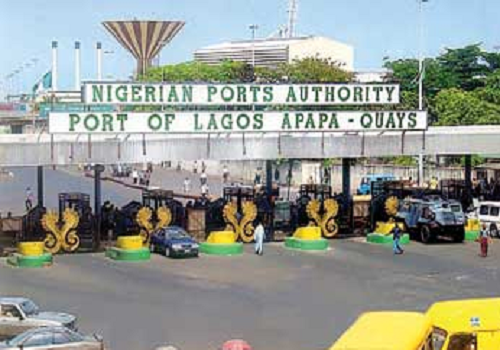The Nigerian Ports Authority (NPA) revealed that between 2015 and 2022, a total of 33,471 vessels visited Nigerian ports, as detailed in the third edition of its handbook on port statistical data. The annual breakdown indicated fluctuations in vessel arrivals, with 4,927 ships recorded in 2015 and a peak of 4,141 in 2021. However, the years 2018, 2019, 2020, and 2022 observed significant declines in vessel visits, culminating in 2022 being marked as the year with the fewest calls at Nigerian ports. The steady decrease in vessel traffic raised concerns regarding the health and efficiency of the maritime sector, particularly as Nigeria’s ports play a crucial role in international trade and economic performance.
Aside from vessel traffic, the NPA reported concerning trends in cargo handling over the same period. The total volume of wet cargo handled reached approximately 351.68 million tonnes, yet significant drops were noted in years like 2016, 2017, and 2022 relative to other years. Notably, gross registered tonnage also experienced a progressive decline, with 2022 registering the lowest total at 116.68 million tonnes. These statistics illustrate a worrisome pattern for Nigeria’s port operations, reflecting a broader concern regarding the efficiency and effectiveness of cargo management systems within these facilities.
The drop in cargo handling is further evidenced by a 2.91 million-tonnes decrease in wet cargo from 2021 to 2022. This decline appears indicative of underlying economic challenges within the country, as emphasized by industry experts. Notably, container handling also lagged with 12,846,136 twenty-foot equivalent units (TEUs) managed from 2015 to 2022, where 2022 accounted for a decrease in TEU handling. The fluctuating figures for TEUs across the years highlight the increasing difficulties in maintaining stable import levels amid a challenging economic landscape.
Economic factors such as the downturn experienced between 2016 and 2017 have led to diminished import demand, as explained by Dr. Eugene Nweke, a former president of the National Association of Government Approved Freight Forwarders. He pointed out that currency fluctuations resulting from naira devaluation led to higher import costs, while also noting that high inflation rates have eroded the purchasing power of consumers. The combined impact of these economic woes, compounded by operational inefficiencies in cargo clearance and poor infrastructure, has significantly hampered the flow of goods, reducing the overall efficiency of Nigerian ports.
In addition to economic conditions, inadequate road networks have created substantial challenges in evacuating cargo from ports, while deficient storage facilities limit the capacity for handling incoming cargoes. Nweke also highlighted that extortion and bureaucratic delays exacerbate the existing logistical problems, while unhelpful trade policies, including strict import regulations, continue to constrain operations. The necessity for policy reform and infrastructural development becomes increasingly urgent, as these elements are vital to the revival of trade and, by extension, the maritime sector.
Former acting National President of the Association of Nigerian Licensed Customs Agents, Mr. Kayode Farinto, also attributed the decline in vessel calls and cargo handling to unfriendly government policies. He emphasized the connection between trade policy, currency stability, and the subsequent maritime industry performance. Farinto argued that a shift towards positive policy announcements would likely lead to an uptick in importation activity, reiterating the importance of a conducive regulatory environment for the revival and growth of Nigeria’s port facilities. The call for the Nigerian government to diversify the economy beyond oil dependency and promote non-oil exports as a means to support the maritime sector remained a significant takeaway from the analysis of the current state of Nigerian ports.














